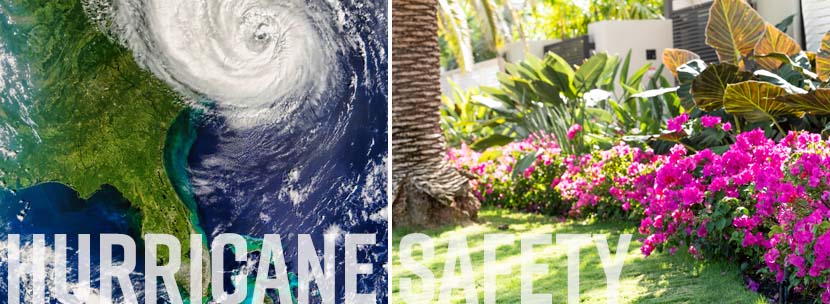Continuum has provided the highest quality facilities and landscaping services in the U.S. since 2007. With the acquisition of Weber Environmental Services in May 2023, Continuum/Weber has become an organization with significant scale and landscaping capability in the Florida market. Part of that capability is servicing customers in response to damage from natural disasters.
Experience and Professionalism
During Florida’s hurricane and storm season, the safety of you and your loved ones is always a priority. When the all-clear is given, the inevitable next steps include property cleanup. With the challenges involved in these efforts, it’s best to enlist the assistance of skilled professionals to conduct the cleanup of your property or business after a storm.
What Sets Us Apart?
Continuum/Weber customers have peace of mind knowing their properties will be safe and secure after a storm. Our process prioritizes the health and well-being of everyone involved and ensures the highest quality service to our contract customers.
Scope of Work
Upon clearance by the federal and local authorities, Continuum/Weber will perform a general inspection and report of conditions to the Property Manager for their use in evaluation and response to post-storm site conditions. Continuum/Weber mobilizes manpower, equipment and vehicles to the job site within 24 hours of the authorities’ clearance to provide cleanup services.
Continuum/Weber services include cleanup, debris removal/dumping and tree reset/removal. Rates are based on a standard, per-contract basis. To discuss details, call (833) 378-4088 or email sales@ContinuumServices.com.
Tips to prepare for what may come.
Hurricane Safety
Hurricanes are a significant concern every year for residents of the southeastern United States. Capable of producing heavy flooding and destructive winds, the strongest hurricanes can destroy homes and present serious risks to those unfortunate enough to get caught in the storm. Meteorologists begin tracking hurricanes and tropical storms when they are detected on satellite imagery, sometimes weeks before they make landfall. It is important to take advantage of this advance notice and prepare.
Those faced with an impending hurricane should stay informed of any guidance or instructions given by local officials. Depending on the severity of the event, officials may order evacuations. Plan out what roads you would take to leave the area and where you would stay ahead of time. Emergencies often result in unexpected delays, so factor extra time into your plans. Gathering supplies could take longer due to shortages at local stores, and evacuation times can take longer due to traffic backups.
If you must shelter in place, make sure your home is ready to wait out a storm. Experts recommend having a week’s worth of supplies on hand. You should keep nonperishable foods, batteries, medical supplies and prescription medicines in an easily accessible storm preparedness kit.
A home generator can be a lifesaver for those caught in a hurricane. Home generators are available at a variety of price points. Standby home generators are the most expensive option. They are powered by natural gas or liquid propane, and they are permanently wired into your home’s electrical system. Standby generators provide nearly immediate power after an outage. Portable generators are usually powered by gasoline or diesel fuel. They are smaller and more affordable than standby generators, but they have a smaller electrical output and can be difficult to hook up in a storm.
Flood Safety
Heavy rainfall from storms can also cause flooding. Low-lying areas—especially those near a body of water—are often at risk of flooding. When a storm could potentially cause flooding, authorities may order evacuations from areas that may be affected. It can be difficult to predict sudden “flash floods” though. If you know the area you live in might be affected, it’s good to have a plan in place. Be aware of local evacuation plans for your area. Keep extra supplies on hand knowing that it might be days or weeks before help arrives. Make sure your essential supplies are kept on a main floor and not in a basement, which would become inaccessible in a flood.
Tornado Safety
Tornadoes are among the most feared weather events in the United States, especially in the Midwest. Tornadoes often appear with little warning, meaning that you might have to make critical decisions in a matter of minutes.
Anyone caught in a tornado should immediately head to a basement area, if possible. In many municipalities, mobile home parks are required to have underground storm shelters. If getting to a basement is not possible, get to the lowest point in the home and stay away from windows, glass objects and unsecured furniture.
Once sheltered, find something to protect your head, neck and back. Remain low to the ground and wait for the tornado to pass. Stay aware of tornado sirens, and only resume movement once the sirens stop and the storm is clear. After a tornado, avoid any areas that could possibly have downed power lines, and report any that you see to your electrical service provider.
Tornadoes can damage utilities and broadcast towers, making it difficult to get information after the event. A portable weather radio is a great investment if you live in a storm-prone area. Keep it in the area where you plan on sheltering, along with your other supplies. Weather radios are available at a variety of price points, but even the least expensive ones will give you valuable information about storms in your area.


